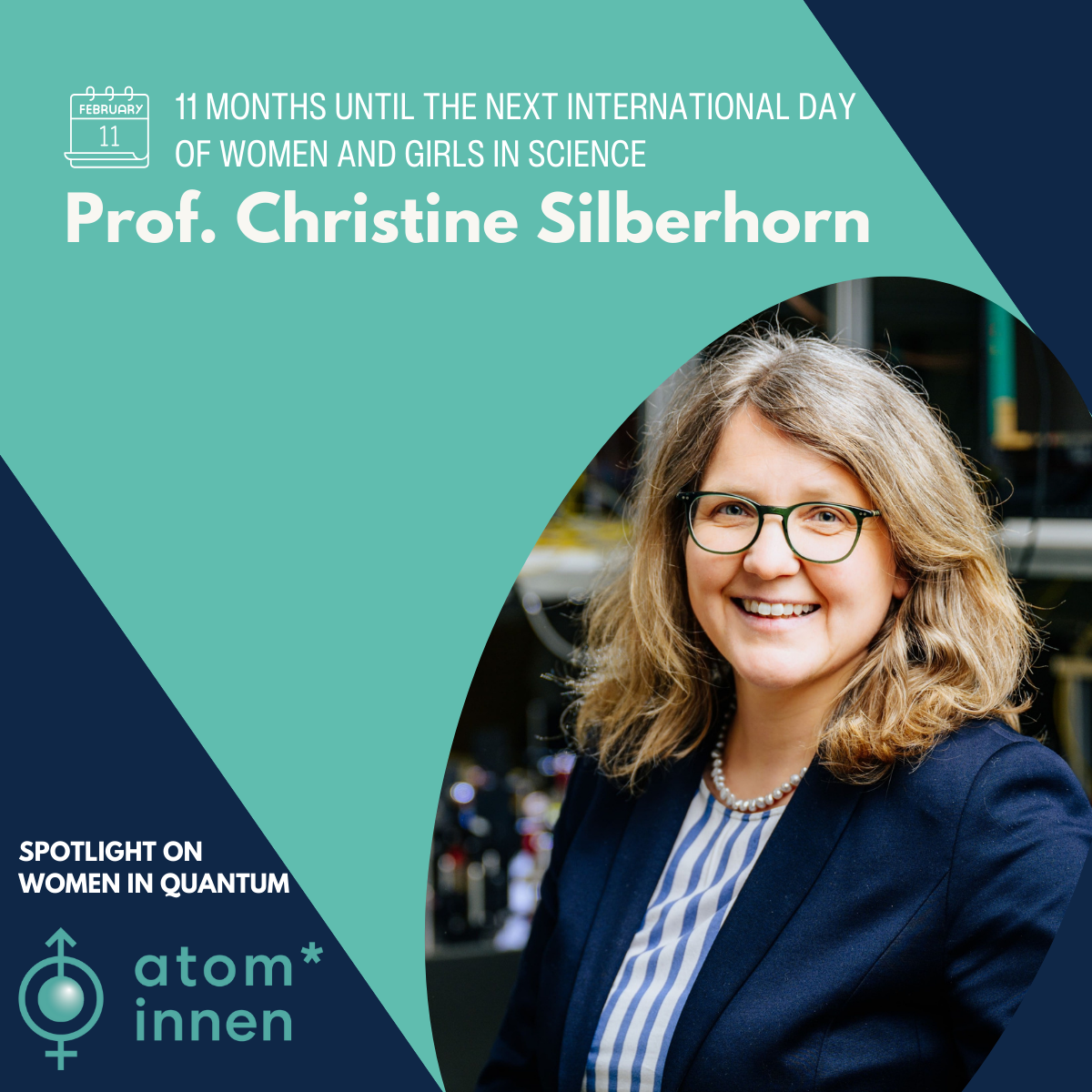Pushing borders: Christine Silberhorn, physicist in integrated quantum optics, Paderborn University

Hi Christine, I am really happy to meet you. Can you maybe introduce yourself?
I studied mathematics and physics at Erlangen University, then left to Oxford for my postdoc. I was doing fundamental science at that time. Then I joined the Max Planck Institute to take the head of a group there. Though at first I was doing fundamental science, today I am also doing applied science. I scale photonic systems.
Now, I have been working on quantum optics and photonics at the University of Paderborn for 14 years. I chose to go there because they are well known for their production of quantum devices. I started to build my group there. What I like about our institute is that it is interdisciplinary. We have 5 to 10 groups doing device fabrication, experimental physics, but you also find computer science and electrical engineering for example.
Why did you choose physics?
While I was studying maths and physics, I was actually majoring in maths, my professors advised me to do a PhD. I liked physics at that point, so I did my PhD in optics. That’s when I really started to like the research.
What was a challenge for you in your job?
I had a fascination for physics because that field pushes the borders. I like how it enables us to understand things. But it is also, as head of a research group, a lot of administrative work. Our job actually demands us lots of different expertise. I would say that it is also a benefit. We get to bring people to work together.
What would be your advice for the next generation who wants to follow your path?
First, I will tell them to look for something they enjoy doing and push it through. You will often encounter issues and challenges in research. You have to trust yourself. That seems to be harder for women though. They usually face more challenges, and mostly have no role model to look up to.
Then, don’t forget living. Ambition is great, but friends and family are important. For example, there is no good moment to have children but it does not mean you should have to choose between your work or having children if you want to.
How do you, yourself deal with both?
I have a supportive partner. I would say having mentors is also really important. You have to ask. You need a network you can rely on. I would also say that our work is actually flexible. I have my own group. I decide on my timetable. For example, I decided that 4 to 8 would be my family time, then I’ll get back to work at night. Everyone is different. You have to do it your own way. Create your calendar in a way it works for yourself. I can be sometimes hard to say no, but you have to learn to do it.
To talk about women in physics...
You have to understand what women really need. And for that, to ask them in an open way. We clearly need a cultural change for gender equality. I think nobody wants this unbalanced environment in the first place. But one has to talk about it to impulse the change. Having a network among female physicists is important. They need a room where they feel comfortable enough to talk about these issues. There is no need for blame, but for acknowledgement.
For example, in our institute we organized a conference for women. Men could still attend, but it was mostly women. The men said they had a “weird feeling” being so few in the room.
How do you address gender equality within your own group?
I have 30% of female physicists in my group. For me a scientist is a scientist. I promote a culture of tolerance. I want everyone to feel comfortable working together. For that I have personal discussions with everyone. I think we need to individualize what is needed.
I feel women are often shyer, which can be a challenge in our field. Indeed, being able to show / advertise for your research is important. Women are often presented as experts, but when it comes to rising stars, it’s mostly men. If you take Einstein for example. He really knew how to present himself.
Thank you :)
Learn more about Christine Silberhorn's work
Author: Angélique Sanchez
Date published: 2024-09-17

